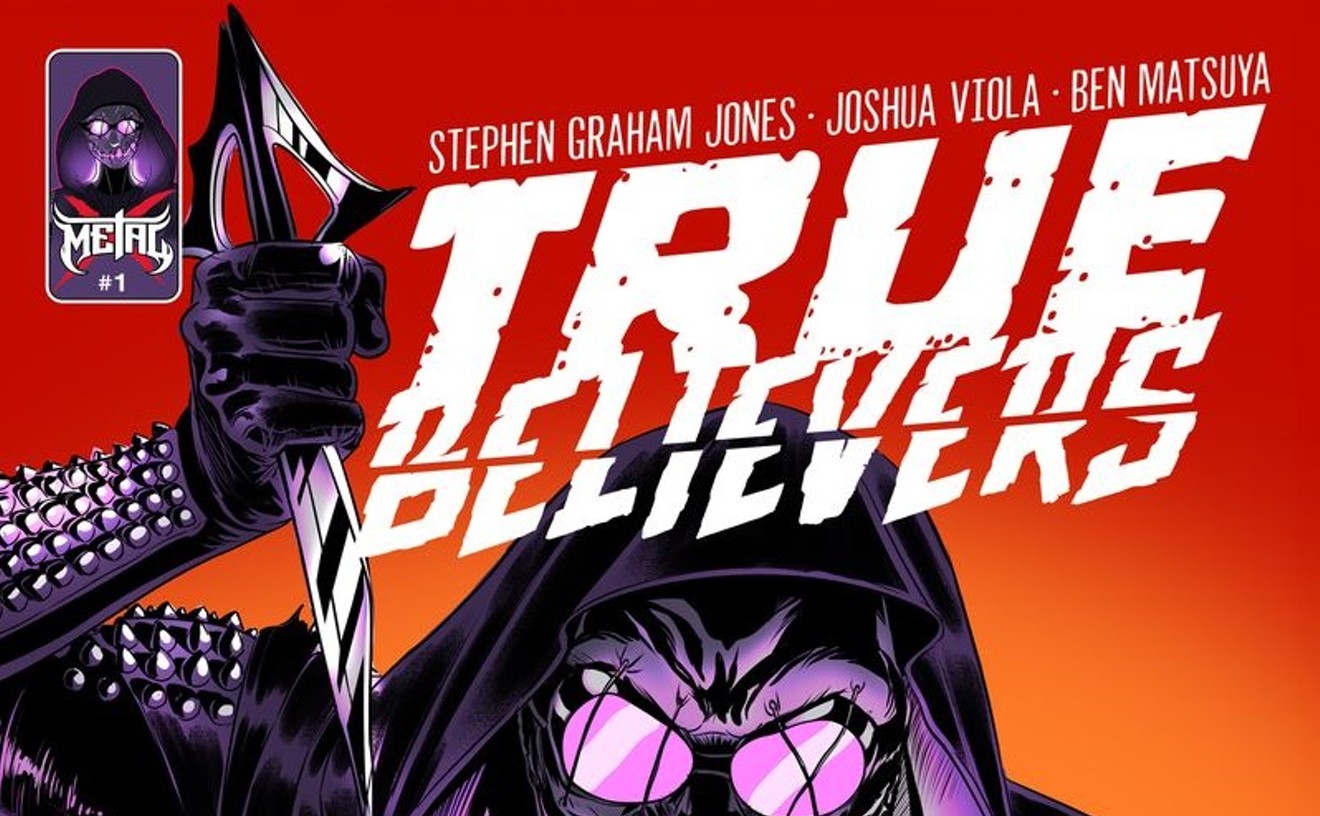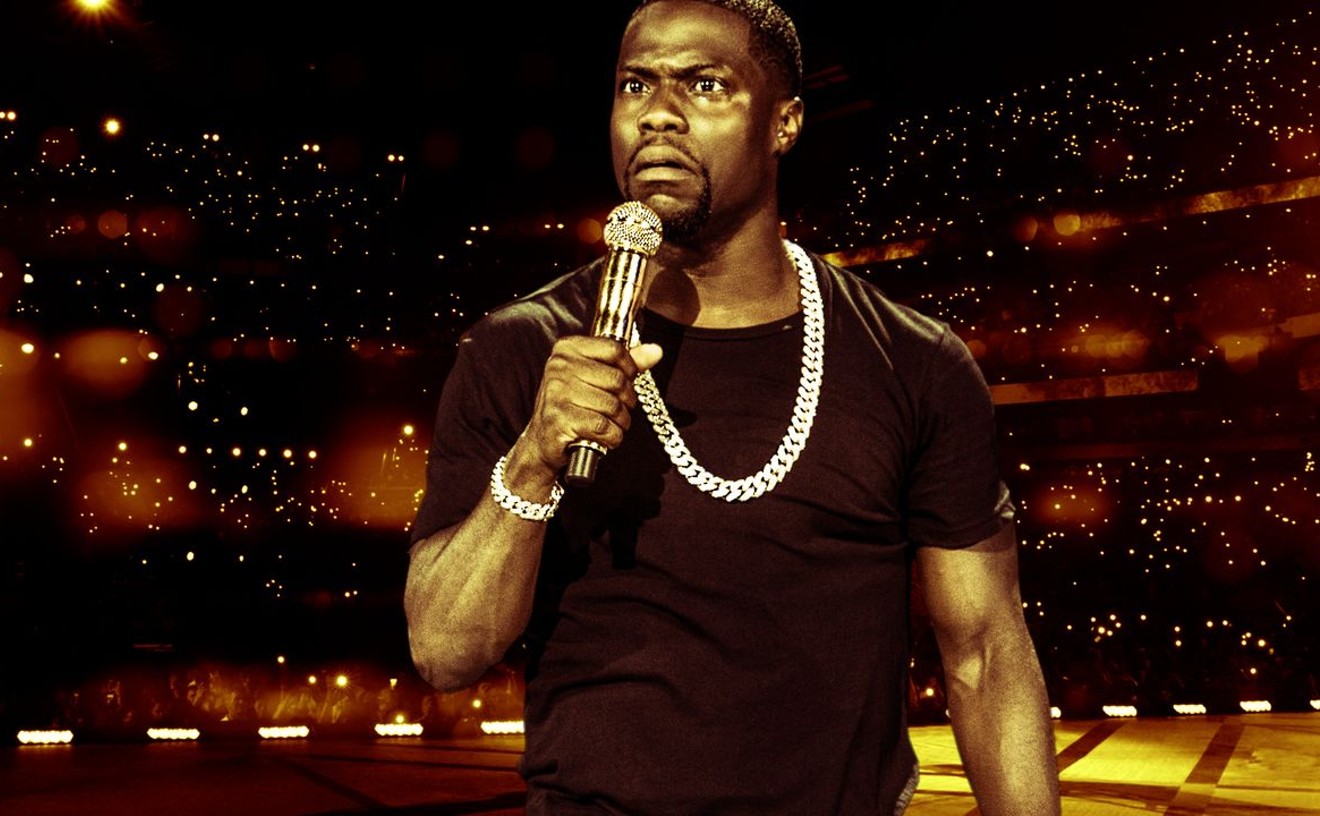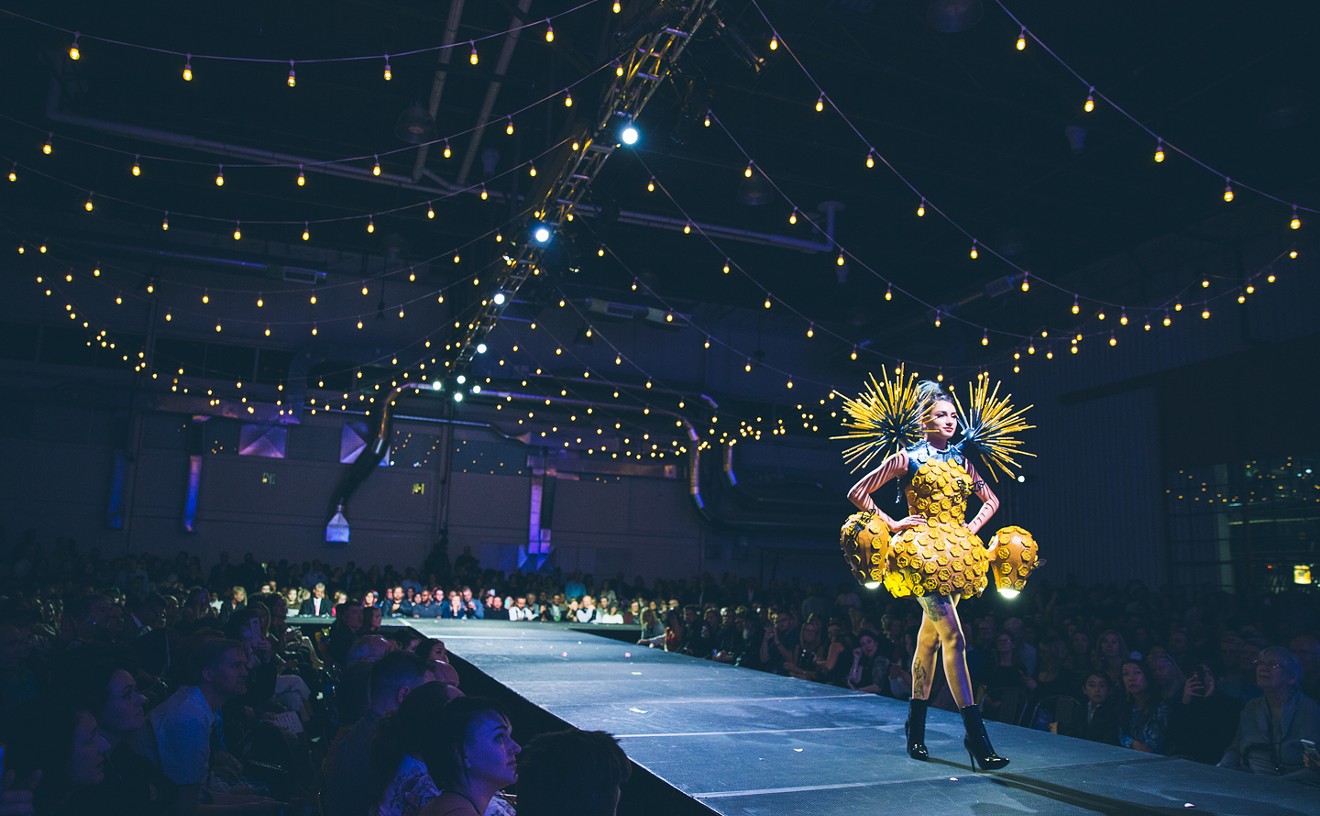This isn't historical; this isn't reality, he says:This is a nation founded on immigrants. Living in the United States is about more than having a social security number; it is about connecting to a rich cultural tradition. For Reyes, that cultural heritage spans the stories that his grandmother passed down about Mexico all the way to James Baldwin's writing. Reyes is a constant reader who rejects the idea that poetry requires training; poetry is accessible. Anyone can write it. Despite risking arrest and deportation, he travels across the country performing and teaching others to connect with their own histories, and he will be in Boulder today for Undocuqueer Voices: Stories of Growing Up Queer and Undocumented. In advance of his appearance, Westword spoke with Reyes about his journey as a writer, performer and teacher.
See also: Queer undocumented artist Julio Salgado speaks out
Westword: Talk about your work.
Yosimar Reyes: I'm a poet; I write a lot of poetry. I'm a performance artist and do spoken word. Most of what I write focuses on intersections of migration and sexuality. Most of my poems deal with those themes.
Talk about what you're doing in Boulder.
I was invited to do a presentation with Julio Salgado, a visual artist. Right now, due to the fact that immigration is a huge, hot-topic issue, we get invited to discuss our experiences growing up undocumented and queer and how we transformed that narrative and created art. We're going to be giving a lecture and a performance on being undocumented and queer and pushing those narratives to the forefront.
Talk about those intersections between being undocumented and queer and how that ties into your work.
A lot of the work I do is personal. Right now we have the LGBT movement, which pushed for gay marriage, and we're trying to pass immigration reform. There is a link between these two communities that are both marginalized and not at the forefront, and what we're trying to do with art, as people who embody these identities, is see how we can come together as two communities that have no institutional power.
Talk about your own story of migration?
I came to the United States when I was three years old. I came with my grandmother. I have been here since then. I'm 25 years old now, so I've been in the country for 22 years. When I think of my culture, it is very American, but I lack the proper documentation to say that I'm an "American," whatever that means. Because I don't have a social security number and I lack access to a lot of things, I've found that art was something that was very accessible. I started writing poetry at the age of sixteen and started documenting my experiences growing up. Since sixteen, I've been producing this work. It's been almost ten years since I've been doing spoken-word poetry.
Have you traveled with your poetry.
I've been really blessed. It's being taken up on a national level. I've definitely done a lot of presentations all over California. I've been to Texas. I've been to Colorado. I've been to New York. Everywhere. North Carolina and Atlanta. I'm going to Arizona. It's definitely picking up on a national level. It's a blessing that a lot of schools and universities are using my work to teach in their classrooms. A lot of professors are using my poems to teach about intersectionalilty (how various issues intersect) and social justice issues. They talk about how you can use art to mobilize people and organize communities and educate youth. How are you using poetry as an organizing tool?
Poetry is very accessible. You don't need a lot of resources. You work with people's personal histories and personal narratives and from there you get the linkage between that and the social struggles within whatever identities that person embodies. Having the ability to give a writing workshop and reflect on these things, I open up their eyes to social inequities and also help them tap into ways and methods in which they can build community and start organizing and advocating for a more just society.
Do you face risks traveling without documentation? What are those risks?
Right now, definitely. You're not issued a state ID, so you have to use the one that you get from the Mexican consulate or whatever consulate your nationality is based out of. A lot of times that can be a risk, and they have the ability to say, "Oh, you have this ID. It's not proper documentation," and they can automatically call ICE, and they can hold you until you provide the proper documentation to say you are in the country legally. So it is a risk, but at the same time, it's something that as someone that is well-known within the community and someone that is really active and visible, I think, right now, it wouldn't be a good strategy for them to stop me or Julio or anybody that is really visible. Our community is very organized and a lot of them focus on stopping deportation and doing civil disobedience and actions in order to bring the issue to light. It's a risk, but at the same time, we're really tapped into networks of people that are very organized, to the point where if something were to happen to us, it would be a national event.
Talk about risk:How do you avoid self-censorship and find power as an artist?
Ultimately, removing the risk is removing the fear. If I acted upon that fear with all the opportunities I've been presented with, it wouldn't be possible for me to be where I'm at right now. It's definitely about losing that fear. Right now, I don't consider it a risk. I think it's more about knowing that whatever happens will happen, and I know that I'm supported and my work is definitely something that speaks louder than any law or anything that somebody can do against me. Keep reading for more from Yosimar Reyes. What would you say to other folks in a similar position who haven't started engaging in a creative process? What would you tell them?
I think ultimately it starts off with letting go of that fear and acknowledging that personal narratives are really important. Those are the tools that you need. I think we need to start looking inward and start from there. It's not that hard. Our form is really accessible. It's something that you don't need training for. It's more like you need to find the passion in it and not be afraid to tell your traumas or your troubles or to let people in and to be vulnerable. I think a lot of people lack that. A lot of people are afraid to write because they don't want to be vulnerable. The number one thing to do is lose the fear of being vulnerable or being human or being raw. When you let go of that, your channels of creativity open up to a whole new dimension. Is the dreamer movement part of the context you're working in?
I haven't been a part of that. There are a lot of nonprofits and a lot of folks who are going hard within that activism. For me, I started doing this when I was sixteen. I wasn't even out. There wasn't that space to be out as a dreamer. For me, the work that I did was mostly based on arts and culture and how as artists we can transform and shape the culture we live in. For me, it wasn't even using the personal narrative to talk about issues of dreamers but more like using it in the context of a global perspective and helping people understand that migration is not a people issue but a systematic issue which forces people to move out of their homelands. It was more about targeting that discussion as opposed to the narrow issue of advocating for higher education.
Is your grandmother still alive?
Yes. That's whom I grew up with. I'm still living with them. My grandparents are a huge inspiration and one of the biggest reasons that I do the work that I do.
Do they have an artistic practice?
Not really, per se. But when it comes to storytelling and I'm sitting down with them and they start telling me stories, that, in a sense, is their creative process. It's about passing down oral traditions and really trying to make sure that I don't forget that I come from a place that may not be economically stable, but it's a place that I can always go to. A lot of times, as undocumented people that want to be integrating into American society, we try to negate the fact that we come from our homelands, but our homelands are origins to be proud of. For me, my grandparents' stories help me to not negate my homeland and to claim it as my own. It so happens that I live in this country, but if it ever came down to something, I would never hesitate to go back to where I come from.
Talk about assimilation as it relates to LGBT and migrant communities.
Assimilation is what this country teaches you. In order to be American, you need to pledge allegiance. The basis of this country and this culture that they promote is definitely being a white male and middle class. When you think of Americans, people automatically assume they have blue eyes and blond hair. We don't really address the fact that this country was founded on immigrants. When you are receiving those conventional messages, that is what you slowly start to become. You think that's what's going to grant you more access to services and more access to being a successful person in this country.
For me, it's always been important to be myself, because I'm none of those things. I don't have blue eyes. I don't have blond hair. My skin is dark. I speak Spanish, and also, I'm queer. I don't necessarily want to fit in. The problems and social inequities of the world are not going to be solved just because I can get married. I think it's very important that people start realizing that these rights that are being passed are tools to distract you from what's really going on. For me, it's always been important to address the fact that you have to be who you are. You can't try to change that for anybody or anything. It's really important. I know a lot of people want to speak Spanish. It's really important to keep you tongue and not lose that because that's your spirit. That's where you come from.
Talk about what it was like coming into poetry. Who inspired you? How did you find yourself in that world?
Literature has been a huge part of the work that I do. I read a lot. When I started reading James Baldwin, it was over. I love him. I think he's a very important American intellectual, someone who has produced a lot of amazing work. I think he was one of my inspirations. I love a lot of other writers and also my teachers. They always told me that I have a voice and that it was important for me to start writing. I've had a lot of support and encouragement to tell the stories the way that I want to.
Salgado and Reyes will lead the workshop Undocuqueer Voices: Stories of Growing up Queer and Undocumented, at 7 p.m. Tuesday, March 18, in the ATLAS Building, 1125 18th Street in Boulder, on the University of Colorado campus. Admission is free.
Follow me on Twitter: kyle_a_harris
Follow @WestwordCulture











